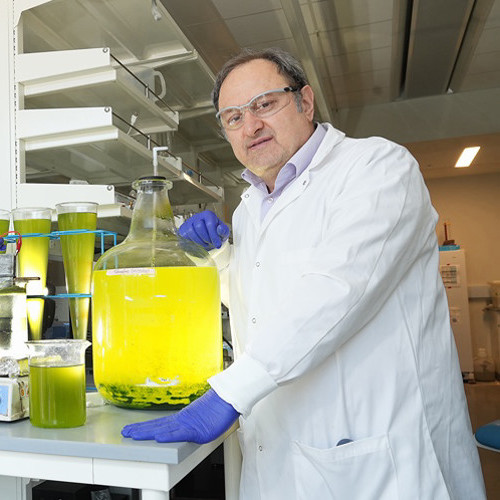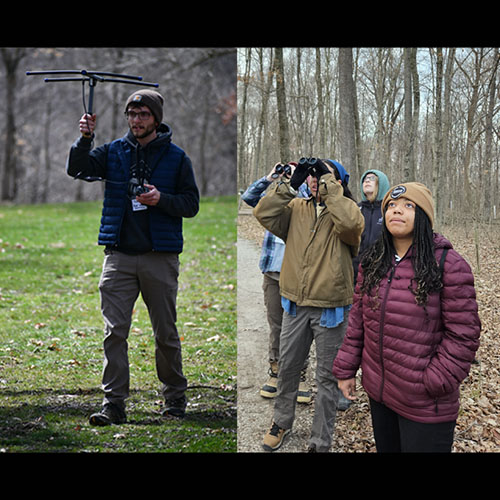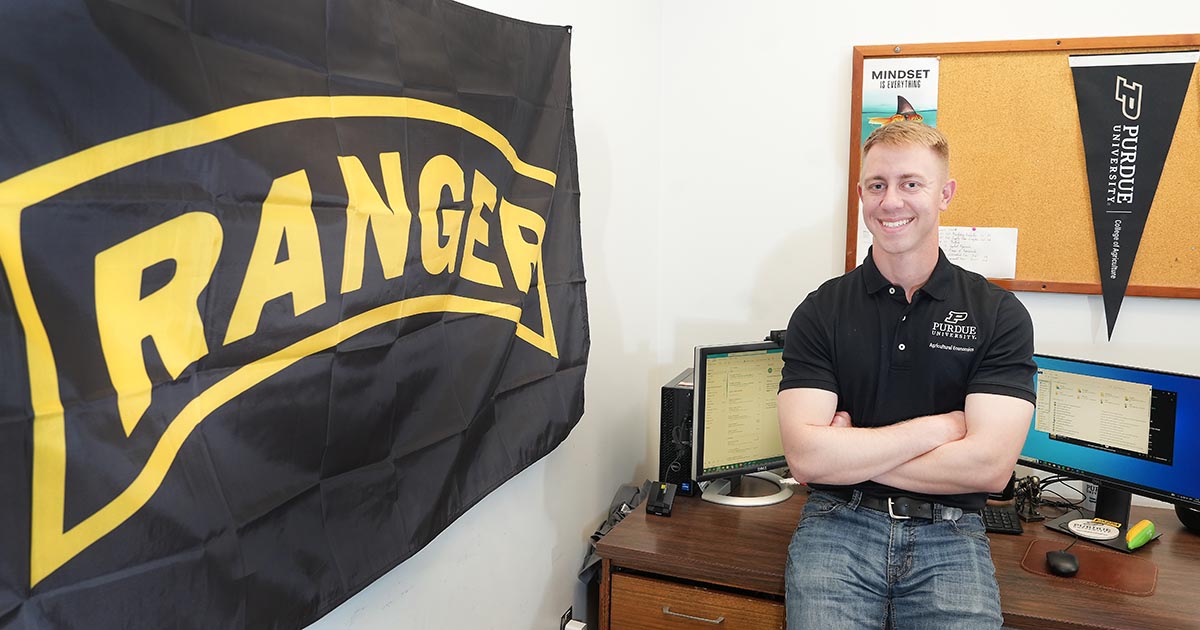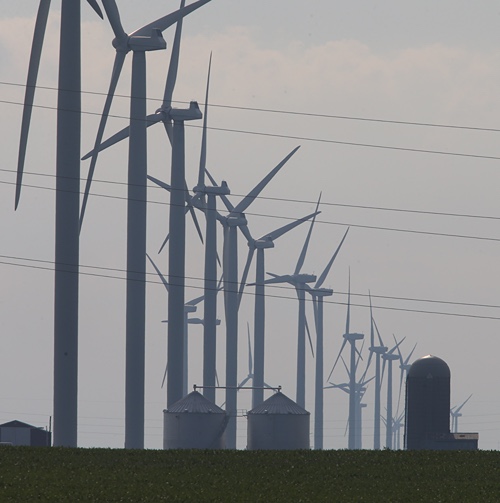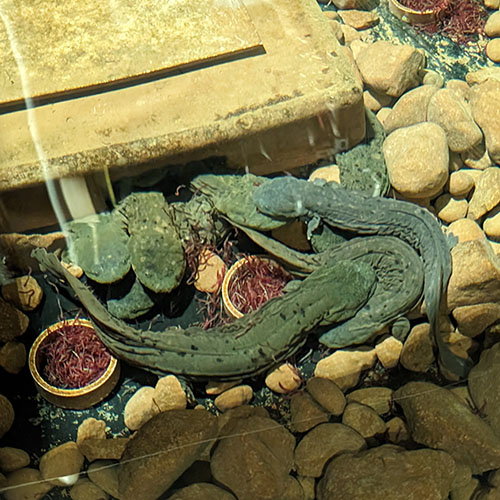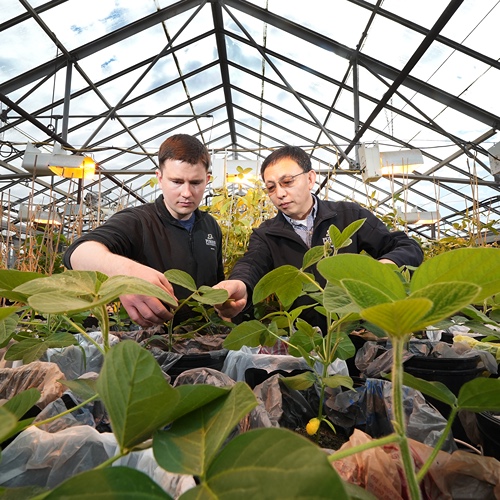"I study the liver of dairy cattle because metabolic disease can lead to the loss of millions of dollars for the dairy industry,” explained Linda Beckett, a Ph.D. student in the Department of Animal Sciences.
Beckett studied animal sciences as an undergraduate at Virginia Tech. She had little experience with cattle before college but answered an ad to work on a farm while a student. There, Beckett came to enjoy caring for the calves and milking the cows.
The experience prompted Beckett to add dairy science as a second major. She then earned a master’s degree focused on ruminant nutrition.
To diversify her education and experiences, Beckett emailed Shawn Donkin, a former professor of animal sciences at Purdue. The message asked about openings for Ph.D. students and noted her research interests aligned with his, though they had never met before.
“I didn’t expect an answer – let alone an answer 20 minutes later on a Sunday afternoon,” Beckett recalled.
Beckett began her doctoral work in January 2019. Although Donkin is now at Oregon State University, he continues to advise Beckett along with co-advisor Theresa Casey, research associate professor in Purdue’s animal sciences department.
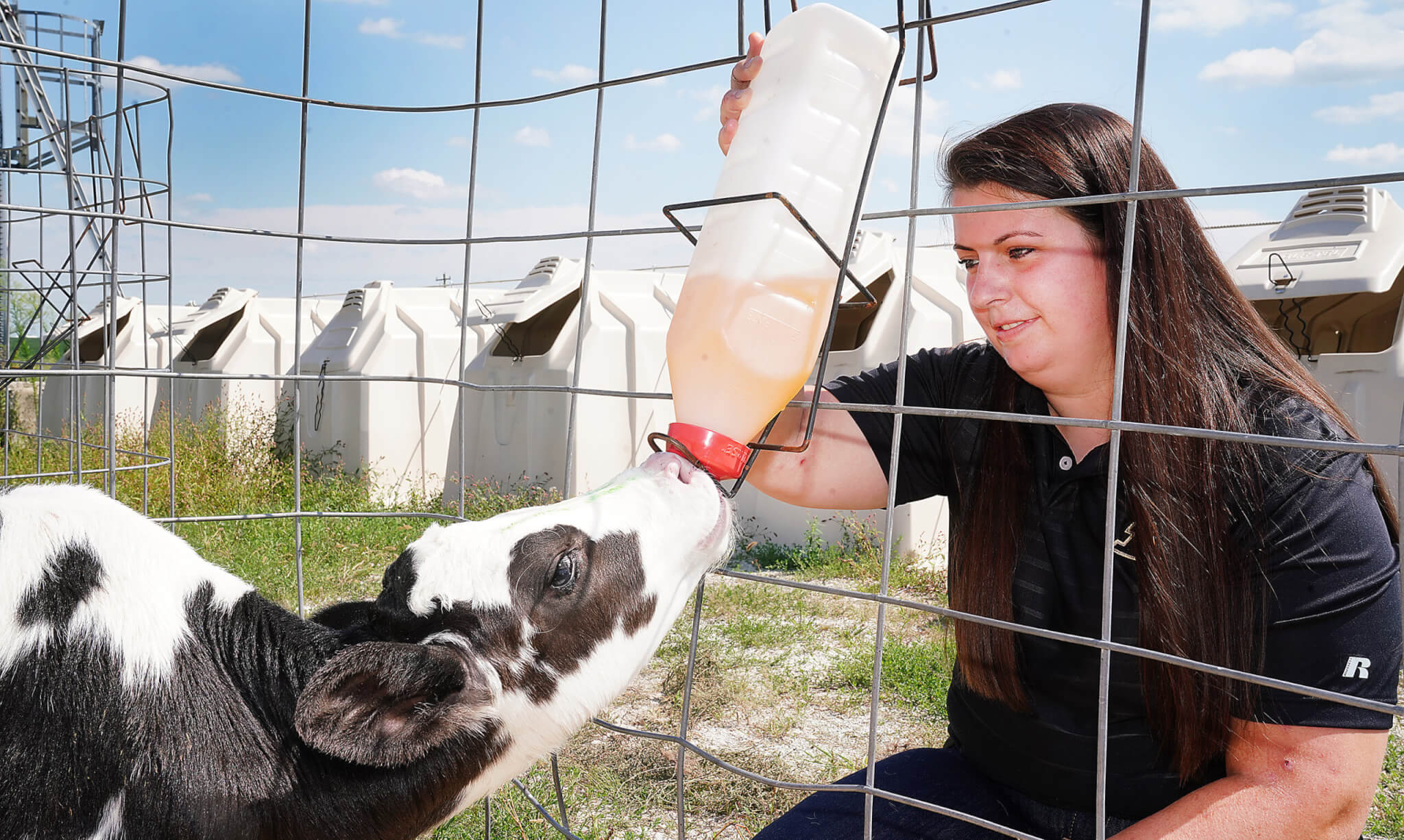
“I felt like I belonged here, at another land grant university,” said Beckett. “In talking to a wide variety of professors, I met supportive people who were generally nice. They were challenging in a good way and interested in creating a rigorous program.”
Beckett’s research tracks carbon movement in the liver through different energy-producing cycles. “Identifying where, how and why carbon is lost will ultimately benefit the metabolic health of the cow.”
The results could help specialists formulate diets that promote energy efficiency and reduce the potential for fatty liver.
Beckett plans to complete a postdoc and secure a faculty position after completing her Ph.D. in May 2022.
